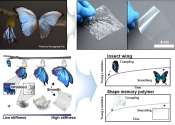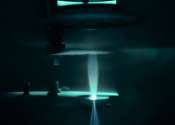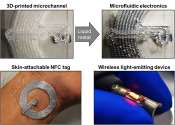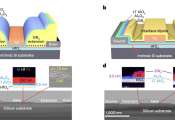Skin patch biomarker sensor that doesn't need batteries
An international team of researchers has developed a skin patch that serves as a biomarker sensor—one that does not need batteries. In their paper published in the journal Science Advances,, the group describes the new ...









